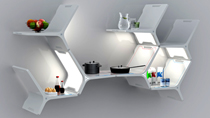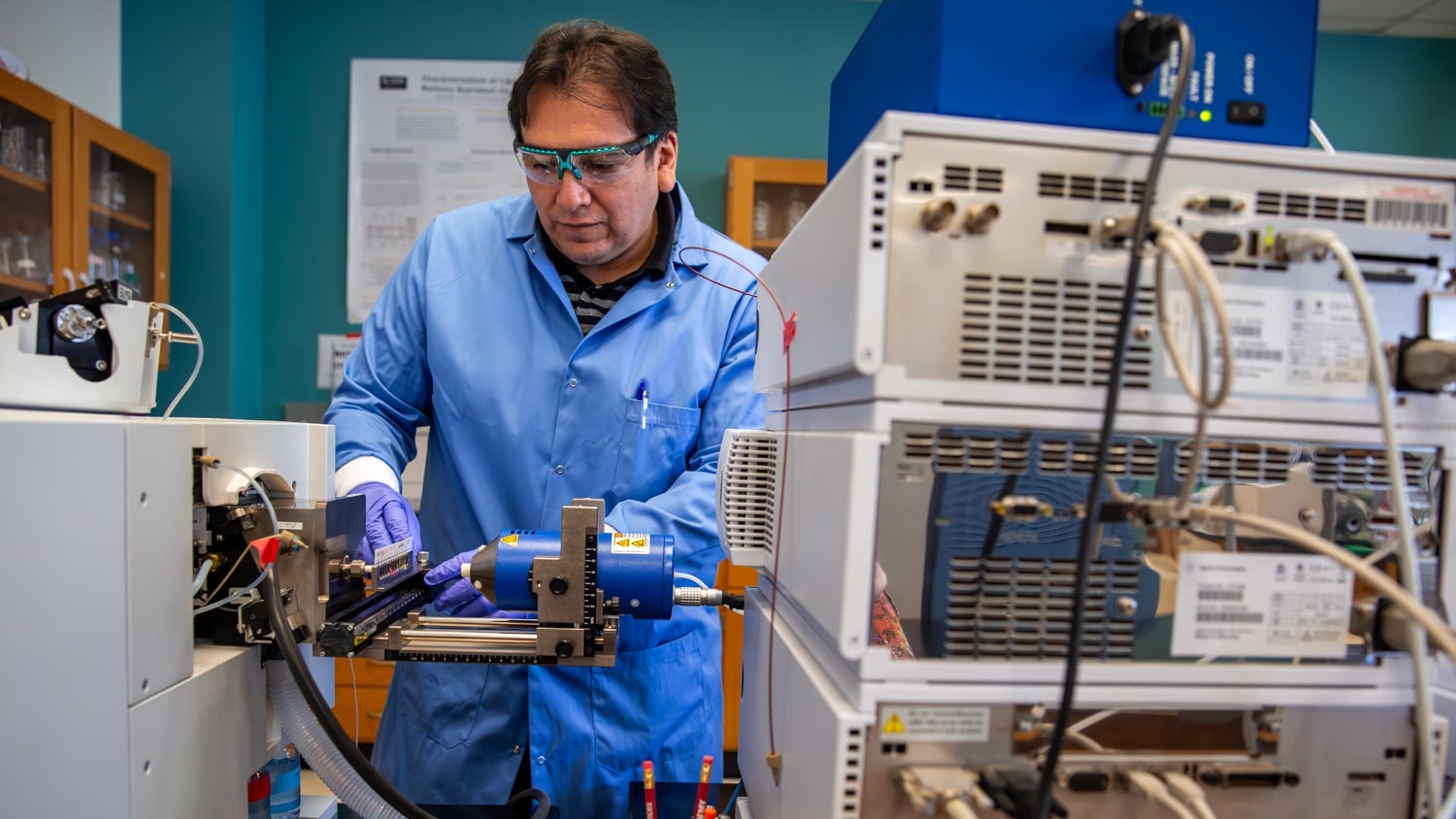Space: The Final Frontier
If you feel like you’re squeezed for counter space in your kitchen today, imagine 50 years from now, when three-fourths of all people on earth are projected to dwell in urban areas—resulting in less space for most cooks.
Such was the challenge posed by Electrolux’s 2010 Design Lab competition. The European manufacturer of kitchen appliances received more than 1,300 entries from students in 50 countries offering cleverly conceived and brilliantly designed space-saving products for the next generation, or the one after that.

Grad Student is Only U.S. Finalist
Matthew Gilbride, an NC State industrial design graduate student, was one of only eight finalists and the only finalist from the United States. His design of modular kitchen shelving — which garnered the third place prize of 2,000 euros — includes wireless technology and the ability to heat or cool food using standardized interlocking panels. The shelves can be arranged in almost limitless configurations and also provide kitchen lighting.
The concept may seem like something out of a Jetsons cartoon, but there’s a lot of practical research behind it. Gilbride studied state-of-the-art designs of boat galley spaces and examined how social insects such as bees are able to build efficient dwellings.
“The concept is basically a modular system that allows you to use as few as one of them, on up to any number of them,” he explained.
Faculty and College Reputation Drew Student
Gilbride’s undergraduate degree is in geology, but NC State’s industrial design program accepts master’s degree candidates with diverse backgrounds, so that wasn’t a roadblock.
Gilbride said he chose the College of Design for its national reputation and the caliber of its instructors.
The Kitchen of Tomorrow
- Categories:


